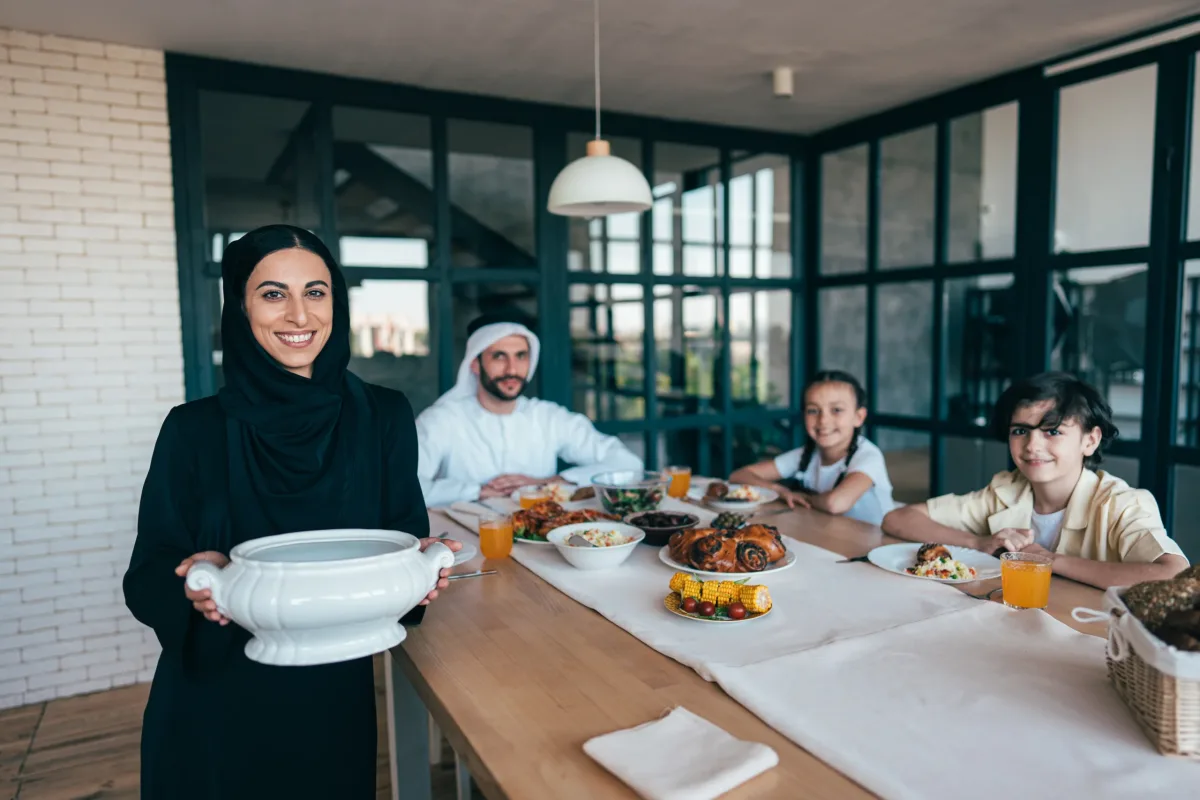The United Arab Emirates (UAE) is a country renowned for its opulence, cultural diversity, and modernity. However, what often stands out to visitors and locals alike is the nation’s unique and flavorful cuisine. UAE cuisine is a delightful fusion of traditional Arabian flavors combined with influences from India, Persia, and beyond. In this blog, we will explore the essence of UAE cuisine, its traditional dishes, and how the modern culinary scene is shaping up to be one of the most exciting in the world.
Traditional UAE Cuisine: A Heritage of Flavors
Traditional UAE cuisine reflects the country’s Bedouin roots and reliance on locally available ingredients. Many dishes are simple yet rich in flavor, featuring staples like rice, meat (often lamb or chicken), and an array of spices. Here are some iconic dishes that define the traditional flavors of the UAE.
Majboos: The Heart of Emirati Cuisine
Majboos, also known as Machboos, is one of the most beloved dishes in the UAE. This fragrant rice dish, similar to biryani, is made with basmati rice, meat (lamb, chicken, or even fish), and a blend of spices including turmeric, cumin, and cardamom. Often garnished with fried onions and nuts, Majboos is a true representation of Emirati hospitality and tradition, served at family gatherings and special occasions.
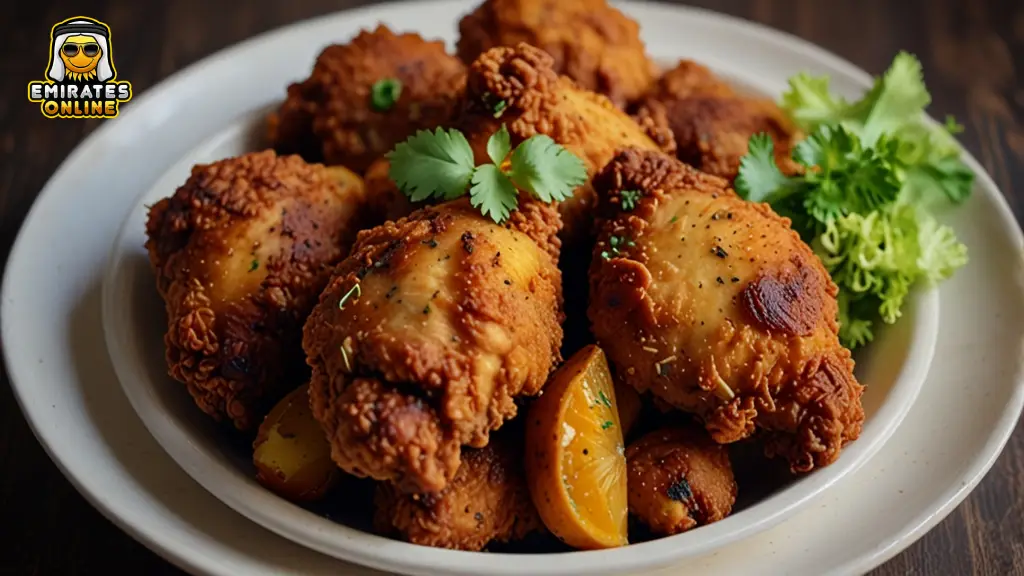
Harees: A Ramadan Staple
Harees is a slow-cooked dish made from wheat and meat, traditionally served during Ramadan and other religious celebrations. The mixture is cooked until the wheat breaks down and forms a porridge-like consistency, offering a warm, comforting meal. Despite its simplicity, Harees is deeply cherished in Emirati homes and is often accompanied by a variety of side dishes and dips.
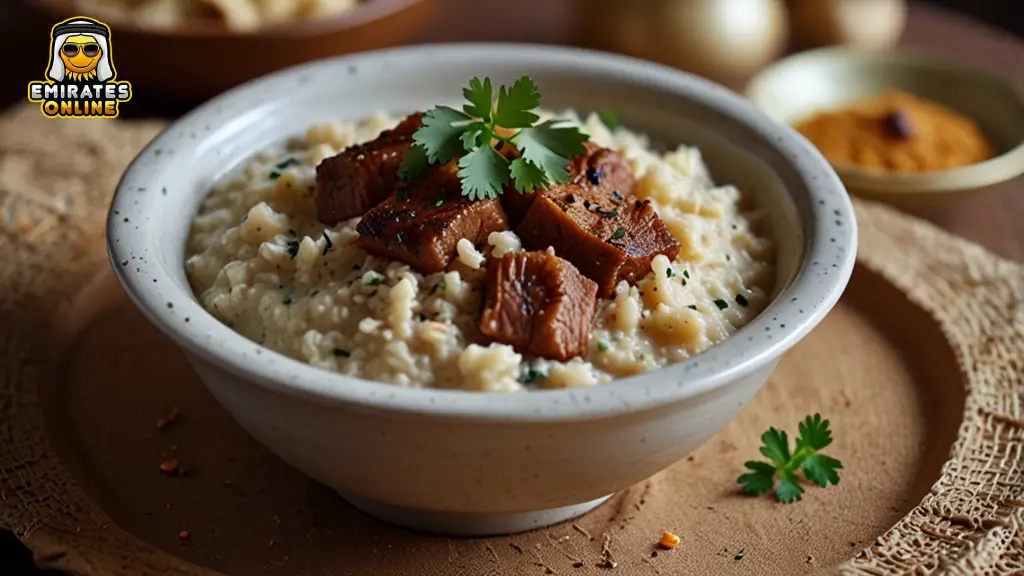
Luqaimat: Sweet Treats with a Crunch
No discussion of UAE cuisine would be complete without mentioning Luqaimat, a favorite Emirati dessert. These small, golden dough balls are deep-fried until crispy and then drizzled with date syrup or honey. The crunchy exterior combined with the soft, doughy interior makes for an irresistible treat often enjoyed with Arabic coffee or tea.
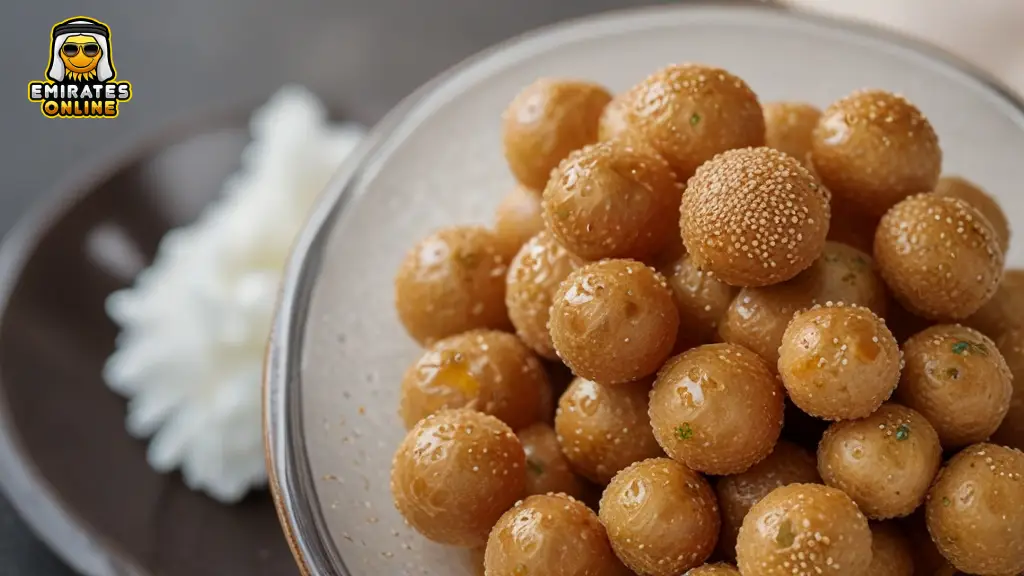
Seafood in UAE Cuisine: A Coastal Delight
Given the UAE’s location along the Arabian Gulf, seafood plays a significant role in the country’s culinary history. Fishing was a key industry in the region long before the discovery of oil, and as such, seafood remains a staple of Emirati cuisine. From grilled hammour (a popular local fish) to shrimp and lobster dishes, the UAE offers a wide variety of coastal delicacies.
Samak Mashwi: Grilled Fish with a Local Twist
Samak Mashwi, or grilled fish, is a popular seafood dish in the UAE. The fish, often hammour, is marinated in a blend of spices, including turmeric, garlic, and lemon juice, before being grilled to perfection. The result is a smoky, flavorful dish that is often served with rice or bread, making it a perfect choice for those seeking a healthy yet delicious meal.
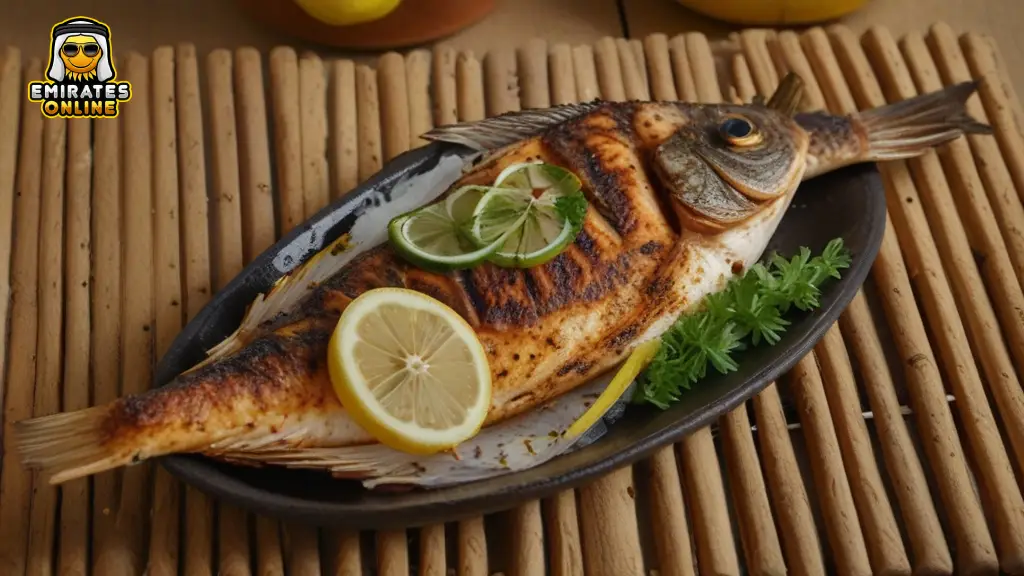
Influence of International Flavors in UAE Cuisine
Over the years, the UAE has evolved into a melting pot of cultures, and its cuisine has followed suit. Dubai, in particular, is home to a thriving international food scene where you can find flavors from around the globe. Indian, Persian, and Levantine cuisines have had a profound influence on Emirati cooking, adding complexity and variety to traditional dishes.
Shawarma: A Middle Eastern Staple
While Shawarma is not unique to the UAE, it has become one of the most popular fast-food items in the country. Originally a Levantine dish, Shawarma is made by marinating thin slices of meat, usually chicken or beef, and then grilling them on a rotating spit. Served in a flatbread with garlic sauce, pickles, and vegetables, Shawarma is a quick and satisfying meal enjoyed by locals and tourists alike.
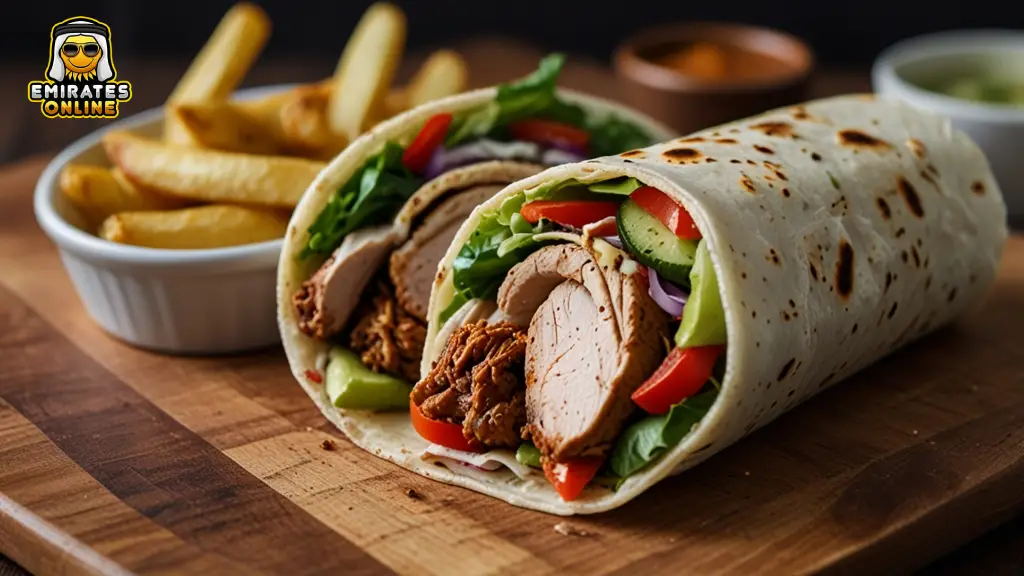
Biryani: A South Asian Influence
The influence of Indian cuisine is particularly noticeable in the widespread love for Biryani. This flavorful rice dish, made with aromatic basmati rice, meat, and a mixture of spices, has been embraced by Emiratis and is often served at family gatherings. Whether it’s chicken, lamb, or seafood Biryani, the dish is a crowd-pleaser and highlights the diversity of flavors in the UAE.
The Rise of Modern Emirati Cuisine
As the UAE continues to grow and develop, so does its culinary scene. Modern Emirati chefs are taking traditional dishes and giving them a contemporary twist, creating fusion cuisine that honors the past while embracing the future. Fine dining establishments in Dubai and Abu Dhabi are at the forefront of this movement, offering diners a unique experience that combines local flavors with global techniques.
Farm-to-Table: Embracing Sustainability
In recent years, there has been a growing emphasis on sustainable eating in the UAE. Chefs and restaurateurs are increasingly sourcing local ingredients and promoting farm-to-table dining experiences. This shift not only supports local agriculture but also ensures that dishes are made with the freshest ingredients. Restaurants like Zuma and Al Fanar are championing this trend, offering modern takes on traditional dishes while focusing on sustainability.
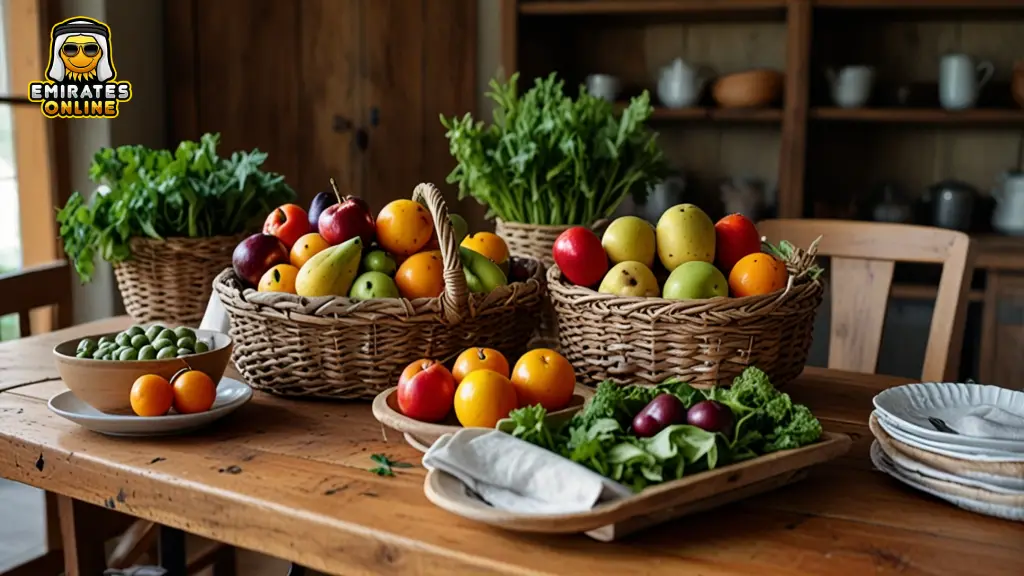
Camel Meat: A Unique Emirati Ingredient
Camel meat has been a part of UAE cuisine for centuries, and while it may not be as commonly consumed today, it is still considered a delicacy. In modern Emirati cuisine, camel meat is often used in burgers, stews, or even as a pizza topping, adding a distinctive flavor that sets it apart from other meats.
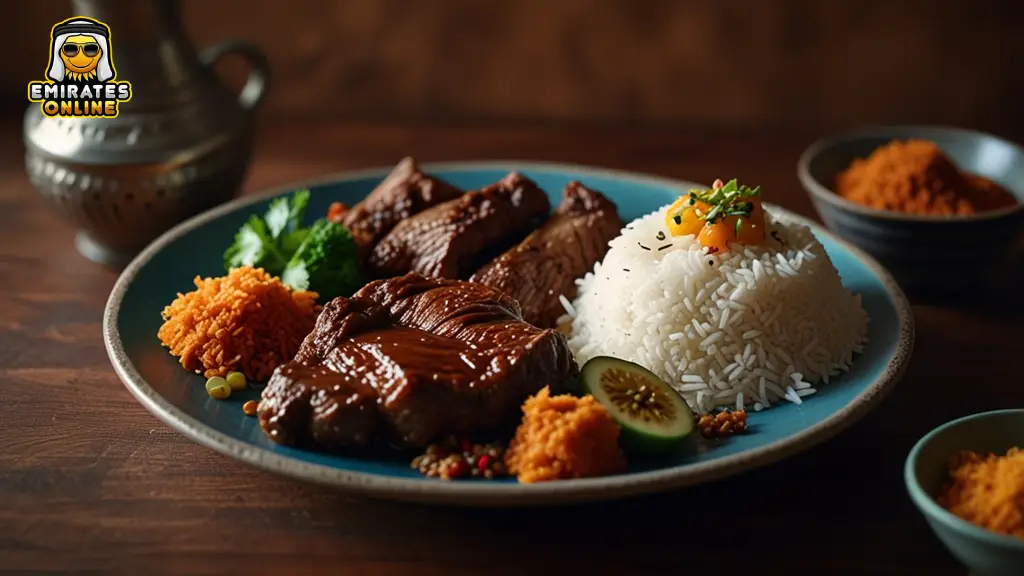
Dining Etiquette in the UAE
If you’re planning to indulge in Emirati cuisine, it’s important to be aware of the dining etiquette. Meals in the UAE are often shared, and it’s customary to eat with your right hand when enjoying traditional dishes. Hospitality is a core value in Emirati culture, and guests are treated with utmost respect, often being offered dates and Arabic coffee upon arrival.
Conclusion
From traditional dishes that reflect its Bedouin roots to the innovative fusion cuisine that graces its modern dining tables, UAE cuisine is a testament to the country’s rich cultural heritage and openness to global influences. Whether you’re savoring a plate of Majboos or enjoying a contemporary take on camel meat, the flavors of the UAE are sure to leave a lasting impression.

